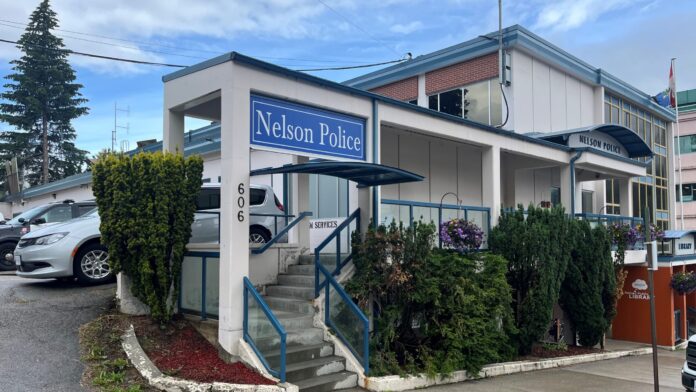Nelson Police Chief Donovan Fisher said the federal government’s assault-style rifle buyback program could strain smaller police forces without extra support.
At the Oct. 8 Nelson Police Board meeting, Fisher discussed the program and the role of municipal police services in its implementation.
In September, the federal government moved forward with implementing the voluntary assault-style firearm compensation program for individual firearm owners, rolled out first in Nova Scotia on Sept. 23.
Public Safety Canada said the compensation program will open to all eligible firearms owners with a nationwide declaration period later in fall 2025, followed by a collection and compensation period in 2026.
Fisher said the B.C. Association of Municipal Police Chiefs supports participation in the buyback and has issued recommendations to the federal government on how to run it without overloading police resources.
“They provided some suggestions to the federal program as to how they think it would be better implemented, ” said Fisher.
“Having dedicated teams and potentially dedicated mobile teams that would arrange to be in communities at different times to collect the firearms, facilitate the storage or destruction, and handle the actual refunding or buying back of the firearms from individuals who are turning them in.”
He said the topic arose at a recent B.C. Association of Municipal Police Chiefs meeting, amid differing stances on the program across the country – specifically in Alberta, which has decided not to participate.
“B.C. supports the program and wants to participate in it. The discussion is more around how do you facilitate it without overloading and burdening detachments and smaller police departments – and even bigger police departments – across the country to manage this,” Fisher said.
Mayor Janice Morrison asked how many assault-style rifles have been turned in in Nelson recently, and Fisher said none.
“I shouldn’t say none. None that I’m aware of – I don’t recall anybody bringing any in.”
Part of the problem, according to Fisher, is amnesty requirements.
“There’s some risk with somebody bringing them in. Even though the amnesty’s on, the amnesty requires people to keep it basically locked up in their house and they’re not allowed to take it out,” Fisher explained.
“One of the requirements of bringing it in is you have to call ahead of time, make arrangements and get permission to bring it here. So if you walked in the front counter with it … let’s just say the outcome could be bad,” he added.
Morrison then asked if Fisher felt the general public was aware of the requirement to phone ahead.
“I guess if I’m cleaning out grandma’s house and I find out she’s got an AK-47 in the basement that I didn’t know about, I’d just think, I’ve got to get rid of this. I’d throw it in the back of my car and drive it to a police station. Are people aware that they should phone ahead?” Morrison asked.
Such situations rarely have occurred locally, though Insp. Jason Jewkes said there have been some similar.
“I think it’s rare that that happens. More often people are calling, and that happens quite often when we get calls to relinquish firearms – like people going through to seize people’s houses – and they generally call us and we go and pick them up,” Jewkes said.
Fisher added that most people seem to be aware of the rules.
“I think generally there’s an awareness that this is happening. And I think people would be more apt to err on the side of caution and fullness before they did anything.”
Want to get your business noticed? Have you considered advertising through your local radio station? Speak to one of our sales agents and find out how radio advertising can boost your business today. Call 250-365-7600 or email Vista Radio.





